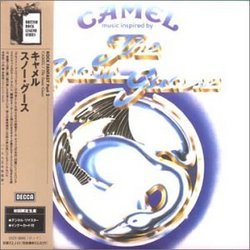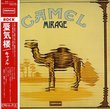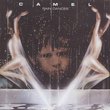| All Artists: Camel Title: Snow Goose Members Wishing: 4 Total Copies: 0 Label: Polygram Int'l Original Release Date: 1/1/1975 Re-Release Date: 5/15/2001 Album Type: Import, Limited Edition, Original recording remastered Genres: Pop, Rock Styles: Progressive, Progressive Rock Number of Discs: 1 SwapaCD Credits: 1 |
Search - Camel :: Snow Goose
 | Camel Snow Goose Genres: Pop, Rock
Japanese reissue of 1975 album originally released on Deram. Packaged in a miniature LP sleeve. 2001 release. |
Larger Image |
CD DetailsSynopsis
Album Description Japanese reissue of 1975 album originally released on Deram. Packaged in a miniature LP sleeve. 2001 release. Similar CDs
|
CD ReviewsA fantastic progressive-rock concept album woburnmusicfan | Woburn, MA United States | 04/22/2003 (5 out of 5 stars) "This 1975 album is Camel's masterpiece, an instrumental concept album based on Paul Gallico's novella about two misfits who become friends during World War II while caring for an injured snow goose. The band had hoped to have a spoken narrative over the music, but Gallico declined and the band was forced to add "Music Inspired by..." to the album title to avoid a copyright infringement suit.The music here was written by guitarist/flautist Andrew Latimer and keyboardist Pete Bardens. A few songs have wordless vocals, but there are no lyrics. Only about half of the album has a rock beat, but the album is excellent throughout. "Rhayader", with a flute melody and synthesizer solo, "Rhayader Goes to Town", with a strong guitar solo and spooky keyboard interludes, "The Snow Goose" and "Flight of the Snow Goose" are all among Camel's best work ever. An orchestra is used to good effect on a handful of tracks. For example, "Friendship" is played by a windwood quartet, with a repeated bassoon triplet representing the goose's waddle. The only weak moments are on "Preparation" and "Epitaph" (the intro and outro to "Dunkirk"), which repeat a 5/4 figure for a combined six minutes. Other than that, the only thing I don't like on the album is the drum part on the title track (it accents a bass counterpoint instead of supporting the terrific main melody).Several themes appear more than once during the CD. "Fritha" is a happy, major key piece with an octave-sliding synthesizer melody; after Rhayader's death at Dunkirk, it is reprised in a minor key on grand piano as "Fritha Alone". "The Snow Goose" and "Flight of the Snow Goose" are repeated with the orchestra as the grand finale "La Princesse Perdue". "The Great Marsh" is a simple piece that slowly fades in to begin the album and fades out at the close. In its use of instrumental music to tell a story, and its reprise of musical themes, "The Snow Goose" captures the feel of good classical music better than almost any rock album ever made. (1=poor 2=mediocre 3=pretty good 4=very good 5=phenomenal)" Camel mellows out here BENJAMIN MILER | Veneta, Oregon | 02/25/2002 (4 out of 5 stars) "The Snow Goose, their third album, from 1975, is regarded as another fan favorite from Camel. I have to admit that I find this album is a bit overrated, as I prefer the albums that came before and after (Mirage and Moonmadness). The album finds the band becoming more mellow, which I thought worked better on their following effort. The album was inspired by a novella by the same name from an author whose name escapes me. The author was less than pleased with the band using his novella for their album, so later pressings of The Snow Goose says, "Music Inspired by The Snow Goose". If you have a version of the album that does not say, "Music Inspired by", then you have the first pressing. I guess the problem I have with the Snow Goose was a few uninspired cuts. One passage features some bassoon that makes me think a little of Gryphon. The album has strings and it's interesting to note that the strings were conducted by none other than David Bedford (he did Mike Oldfield's Orchestral Tubular Bells the same year as The Snow Goose). But there are some really nice atmospheric numbers, as well. With the exception of some wordless vocals, this album is all instrumental. While many swear The Snow Goose to be one of Camel's finest hour, to me I find the album just a little uneven. At least when it comes for their four albums they released with the original and best lineup (Peter Bardens, Andy Ward, Andy Latimer, Doug Ferguson), this one is still better than their 1973 debut which I found the sound of that album a bit underdeveloped."
|

 Track Listings (16) - Disc #1
Track Listings (16) - Disc #1
